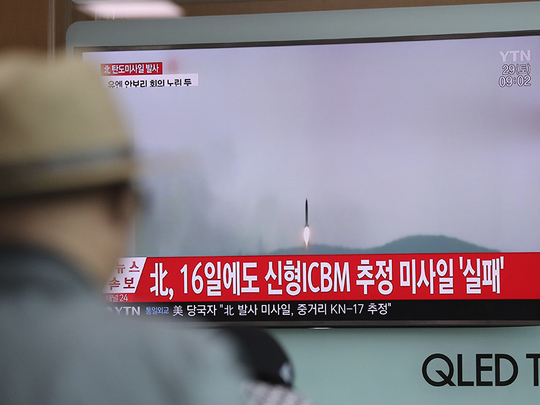
The common perception of North Korea is that of totally sealed-off country, a reclusive nation that restricts most travel and access to the outside world for its citizen. Actually, it isn’t that drastic, it’s more like a myth.
In the small side streets of Bangkok’s Ekkamai neighbourhood, a quite upscale area in the city, a lot of gourmet dining outlets can be found, and the area turns really busy in the evenings. The offers span over a wide range of international food, and there is literally everything for any taste. Even for the North Korean palate.
Bangkok is one of the cities where the North Korean Pyongyang Okryu restaurant chain operates an outlet. The restaurant is a branch of the state-owned chain that comprises about 130 restaurants and operates mainly in China and Southeast Asia, and also in Mongolia, Bangladesh and Russia under the name of Okryugwan, or Okryu. Its most important purpose is to help the North Korean government earn badly needed foreign currency and, presumably, to provide money laundering dens based on the model of Chinese restaurants in Western countries in 1980s and 1990s. Dishes get served by tight-lipped, but friendly waitresses who don’t want to be photographed, and the restaurant is reportedly under direct supervision of North Korean diplomatic personnel, who also collects the daily revenue and sends it back to Pyongyang on a regular basis.
There were even restaurants in Amsterdam and Kathmandu, but they closed when their managers absconded.
The Pyongyang Okryu chain is just one example of how active North Korean citizens are outside their homeland. The affair revolving around the alleged execution in a poison attack of Kim Jong-nam, North Korean leader Kim Jong-un’s estranged half-brother, last February at Kuala Lumpur International Airport revealed that North Koreans were operating a business network in Malaysia in an unimpeded manner to circumvent the trade embargo against their country.
North Korean citizens didn’t even need a visa to enter Malaysia until the attack, which shed light in the fact that a North Korean passport is in fact not so much of a travel spoiler since they can actually enter 39 countries globally without a visa or with a visa on arrival, most notably Cambodia, Bangladesh, Macao, Nepal, Sri Lanka, Iran, Jordan and a number of African and Latin American nations. Actually, they are better off than passport holders from Lebanon or Pakistan, for example, or from Sri Lanka, Bangladesh and Nepal. North Korean citizens could even enter Singapore visa-free until mid-2016 when the city state eventually changed the rules.
Little is also known about North Korean labour brigades that work outside the country to earn hard currency for the leadership back home. According to United Nations reports, they are working in the tens of thousands mainly in the mining, logging, textile and construction industries in China and Russia, but also in the Middle East and across Southeast Asia. A story made headlines last year when North Korean workers absconded from a labour accommodation in Qatar where they were apparently building on soccer stadiums and hotels for the Fifa World Cup 2022. Latest estimations say that around 60,000 North Korean overseas workers raise up to $300 million annually in hard currency for Pyongyang.












